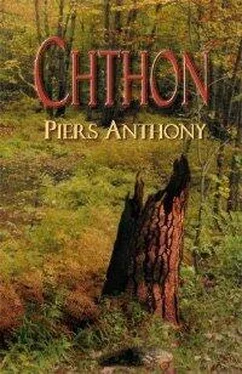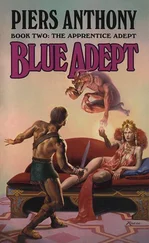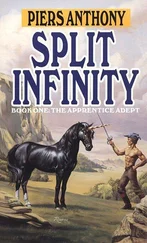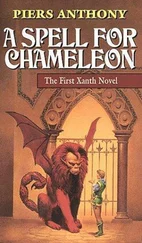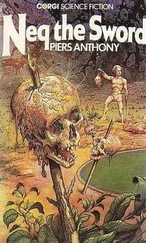Piers Anthony - Chthon
Здесь есть возможность читать онлайн «Piers Anthony - Chthon» весь текст электронной книги совершенно бесплатно (целиком полную версию без сокращений). В некоторых случаях можно слушать аудио, скачать через торрент в формате fb2 и присутствует краткое содержание. Город: 1967, Издательство: Ballantine, Жанр: Фантастика и фэнтези, на английском языке. Описание произведения, (предисловие) а так же отзывы посетителей доступны на портале библиотеки ЛибКат.
- Название:Chthon
- Автор:
- Издательство:Ballantine
- Жанр:
- Год:неизвестен
- Город:1967
- ISBN:нет данных
- Рейтинг книги:5 / 5. Голосов: 1
-
Избранное:Добавить в избранное
- Отзывы:
-
Ваша оценка:
- 100
- 1
- 2
- 3
- 4
- 5
Chthon: краткое содержание, описание и аннотация
Предлагаем к чтению аннотацию, описание, краткое содержание или предисловие (зависит от того, что написал сам автор книги «Chthon»). Если вы не нашли необходимую информацию о книге — напишите в комментариях, мы постараемся отыскать её.
Nominated for the Hugo Award for Best Novel in 1968.
Chthon — читать онлайн бесплатно полную книгу (весь текст) целиком
Ниже представлен текст книги, разбитый по страницам. Система сохранения места последней прочитанной страницы, позволяет с удобством читать онлайн бесплатно книгу «Chthon», без необходимости каждый раз заново искать на чём Вы остановились. Поставьте закладку, и сможете в любой момент перейти на страницу, на которой закончили чтение.
Интервал:
Закладка:
Jill’s hand touched his arm. “Aton?”
He jumped. “Believe me, I never meant to—”
“What’s the matter with you, all of a sudden?” she demanded, rolling over to peer into his face.
Didn’t she know ? “The blood. There’s blood.”
She stared. “ Blood ? What are you talking about?”
“Down—between—I felt it. I never—”
“You’re crazy. It’s not the time of the—” Suddenly she giggled. “Blood? You mean you thought that was—? Haven’t you ever done this before?”
He lifted his head, finding her hot breasts close under his chin. “Before?”
“You don’t know!” she exclaimed, the thoughtless child in her ascendant over the dawning woman. “You really don’t! And here all the time I was looking up to you, waiting for you. I thought you were the big boy.”
Aton cowered behind his raging shame, unable to reply.
Abruptly she was the woman again. “I’m sorry, Aton. I guess you don’t get out much. Here—I’ll show you how—”
But he was on his hands and knees, scrambling away from her, barging out, finding the open night and running, sick with shock and embarrassment.
Three
Aton became a handsome, outwardly confident young man of twenty. He never spoke of his plans; on Hvee it was taken for granted that the son of high Family would advance to his father’s fields. At last he received the summons he had known would come.
The living room of the house of Aurelius was generous and comfortable. A substantial hard-backed wooden chair, almost a throne, sat in a corner, parallel to the entrance; no one could exit without passing under the survey of that grim relic. A plush full-length couch lay against the far wall, seldom used. Above it, placed on the wall so that it faced Aurelius’s chair, was a color photograph of a handsome young woman: Dolores Ten, dead these twenty years and more, in childbirth. Aton had never been able to face that picture without experiencing a deep and painful guilt, compounded by another and rather different emotion that never found conscious expression.
Aurelius Five was old, far nearer to death than his chronological age required. In health he would have been a powerful man, competent, determined, and scheduled to live another fifty years at least; but he was not in health, and only the power of his mind remained. He had exposed his body to the foul spring swamp (’spring’ by convention only, on seasonless Hvee) too many years, and the incurable—locally—blight had taken hold. Aurelius, being what he was, had refused to spend a long convalescence on far-distant Earth, away from his farm. He had left the planet once, only once, and vowed never to do so again, and now he was in the process of dying for that vow. Aton, knowing something of the prior circumstance, agreed with the principle, though he never took it upon himself to tell his father so. They were not that close.
Aurelius might work three more years, and live five. Already he spoke slowly, tired too easily. He was the shell of his youth. The hvee tolerated him, but not gladly; too much of the swamp infested him now, anathema to the tender plants. His frame was gaunt: there seemed to be too little flesh between the hanging skin and brittle bone.
“Aton,” the worn man said. “Soon—”
Aton stood beside his father, expecting to find no pleasure in the interview, but knowing that this had to be. There was too much of sorrow in their relationship, and each saw it in the other, with a premonition that that sorrow had not yet reached its nadir. They shared a cross that could not be put down until more than death had come to pass.
“Soon you must farm the hvee yourself,” Aurelius said, speaking with all the certainty he could muster, pitiful in the implied insecurity of it. “Soon you must take your wife.”
It was out—the condition he had feared. Farming was not a solitary occupation. The death of the daughter of Ten, wife to Aurelius, had damaged the crops of Five, and only Aton’s early success had prevented complete ruin. The emotional climate had to be correct for hvee, and here it was not. The successful farm was run by a family, and the matches were most carefully made. The matter was far too important to be left to the idiosyncrasies of the young.
“Who is she?”
Aurelius smiled, taking the question for assent. “She is the third daughter of eldest Four,” he said.
Four, eldest. This was a good match indeed. Aurelius deserved his tinge of pride. The possessors of First names preferred to have sons to carry on the lineage, but they protected their daughters by wifing them as prominently as possible. Many times the highborn daughters declined to marry at all, rather than drop in station. The ranking of Five was a favorable one, but there were many eager daughters below, and few above. There must have been complex negotiations.
Aton felt a pang, knowing that the effort had gone for nothing. The Families of Hvee were regarded by offworlders as aloof and cold, and in many ways they were; but within the formalistic structure the bonds were deep. Aton seldom spoke to his father, and the relationship between them was something less than usual even for this culture, but it did not surprise him to discover that Aurelius had gone to great pains to arrange an advantageous marriage. The line had to be continued honorably, and Aton was the only man bearing the name of Five who could accomplish this.
“No.”
Aurelius went on. “For you, with a wife, a good wife, the hvee will grow. For you the farm will prosper…” He drifted to a stop. Aton’s answer had penetrated. He closed his tired eyes to shut in the hurt.
“I must take another,” Aton said.
The old man did not try to argue, overtly. “She is strong, she is fair,” he said. “I have seen her. On all of Hvee there is not a finer match. She is not like the—the degradingly promiscuous sluts of the latter Families. You would… love her.”
Aton bowed his head, ashamed for himself and for his father. Aurelius had never stooped to pleading in his life, but he seemed close to it now.
“She is a song, a broken song in the forest,” Aton said, trying to explain what could not be justified. Was he indeed afraid of a liaison with a local girl? He suppressed the thought immediately. “She kissed me and gave me my hvee; I can love no other.”
Aurelius stiffened. Aton had not told him about the forest nymph before. The matching procedures of the Families did not deny the need for love; rather, they insisted upon it. The ritual of the hvee guaranteed it. Aton could not marry without his father’s approval, but he did not have to accept a woman he did not love.
“Show her to me,” Aurelius said at last. He could not yield more. If Aton could bring home his nymph, she would be approved; if he could not, he was honor bound to give the arranged betrothal a chance.
Twenty-one, and the music for which he longed came once again. It was fleeting and haunting, but clear enough to his eager listening. He made for the forest, cruising through the several fields as rapidly as he could without damaging the hvee.
Aurelius signaled from a nearby field. He was not able to work outside every day, but this time he had arranged it. He intended to meet the nymph, and Aton had in effect agreed. Aton waited in an agony of impatience for his father to catch up.
It was the broken song, bending the very trees to its enchantment. It swelled, chord and descant, stirring Aton’s blood with its ultimate promise. This time, this time—
It ceased.
Aton sprinted for the glade, hurdling the well, leaving Aurelius behind. He burst upon it.
He stood absolutely still, listening for the sounds of her departure, but he could hear nothing above the noise of the man behind. She was gone.
Читать дальшеИнтервал:
Закладка:
Похожие книги на «Chthon»
Представляем Вашему вниманию похожие книги на «Chthon» списком для выбора. Мы отобрали схожую по названию и смыслу литературу в надежде предоставить читателям больше вариантов отыскать новые, интересные, ещё непрочитанные произведения.
Обсуждение, отзывы о книге «Chthon» и просто собственные мнения читателей. Оставьте ваши комментарии, напишите, что Вы думаете о произведении, его смысле или главных героях. Укажите что конкретно понравилось, а что нет, и почему Вы так считаете.
